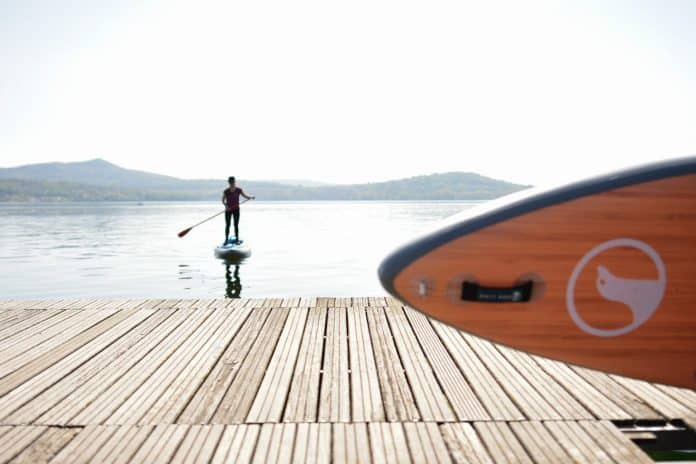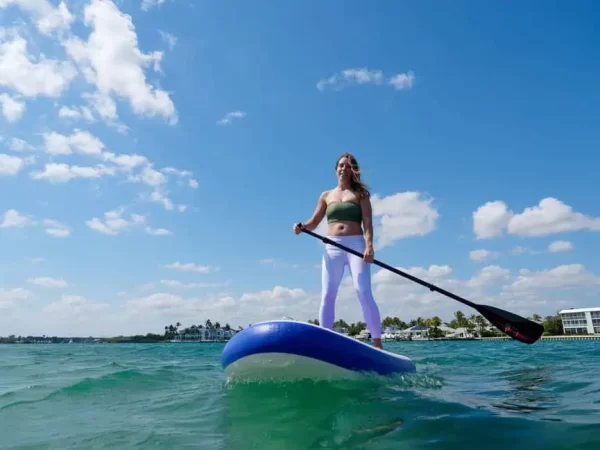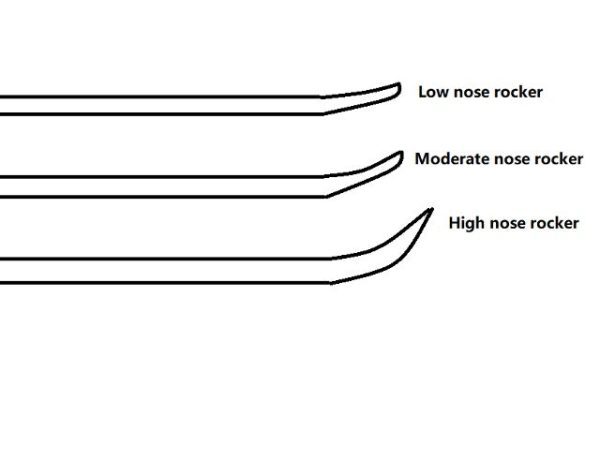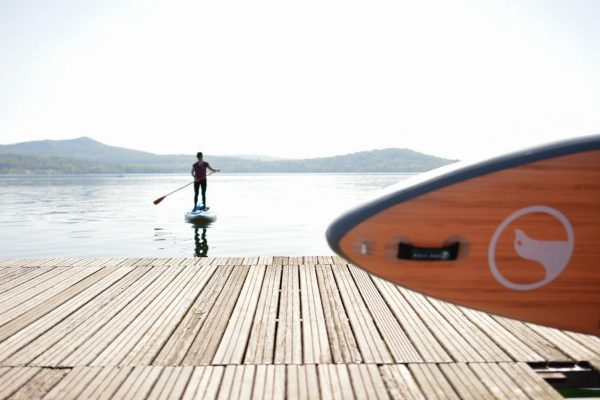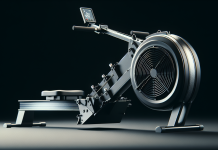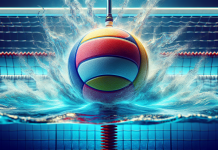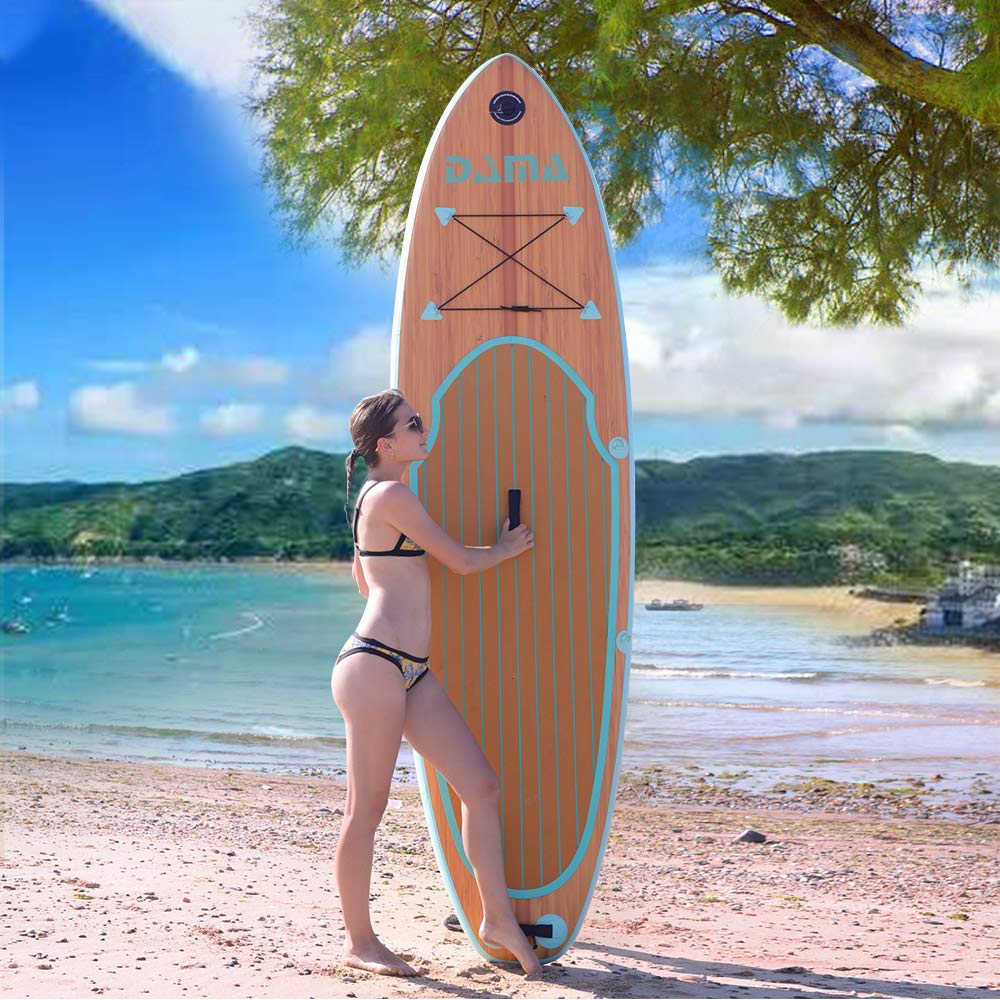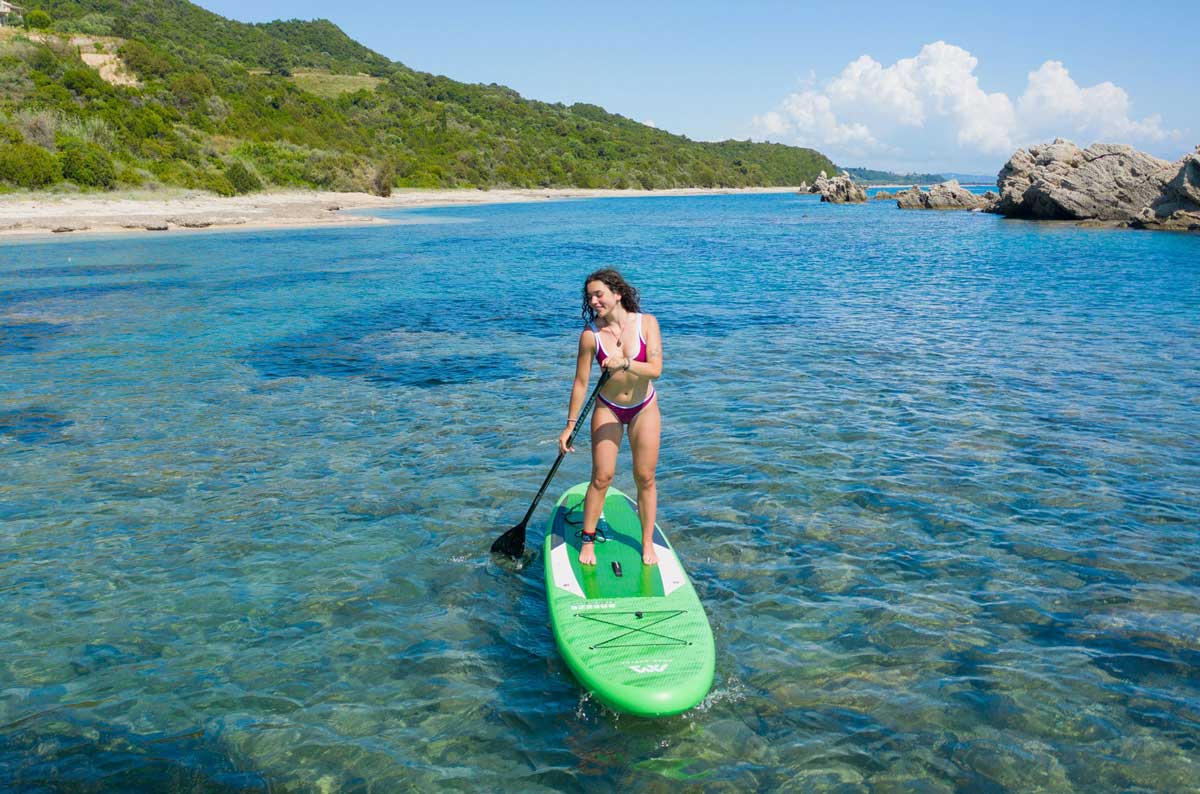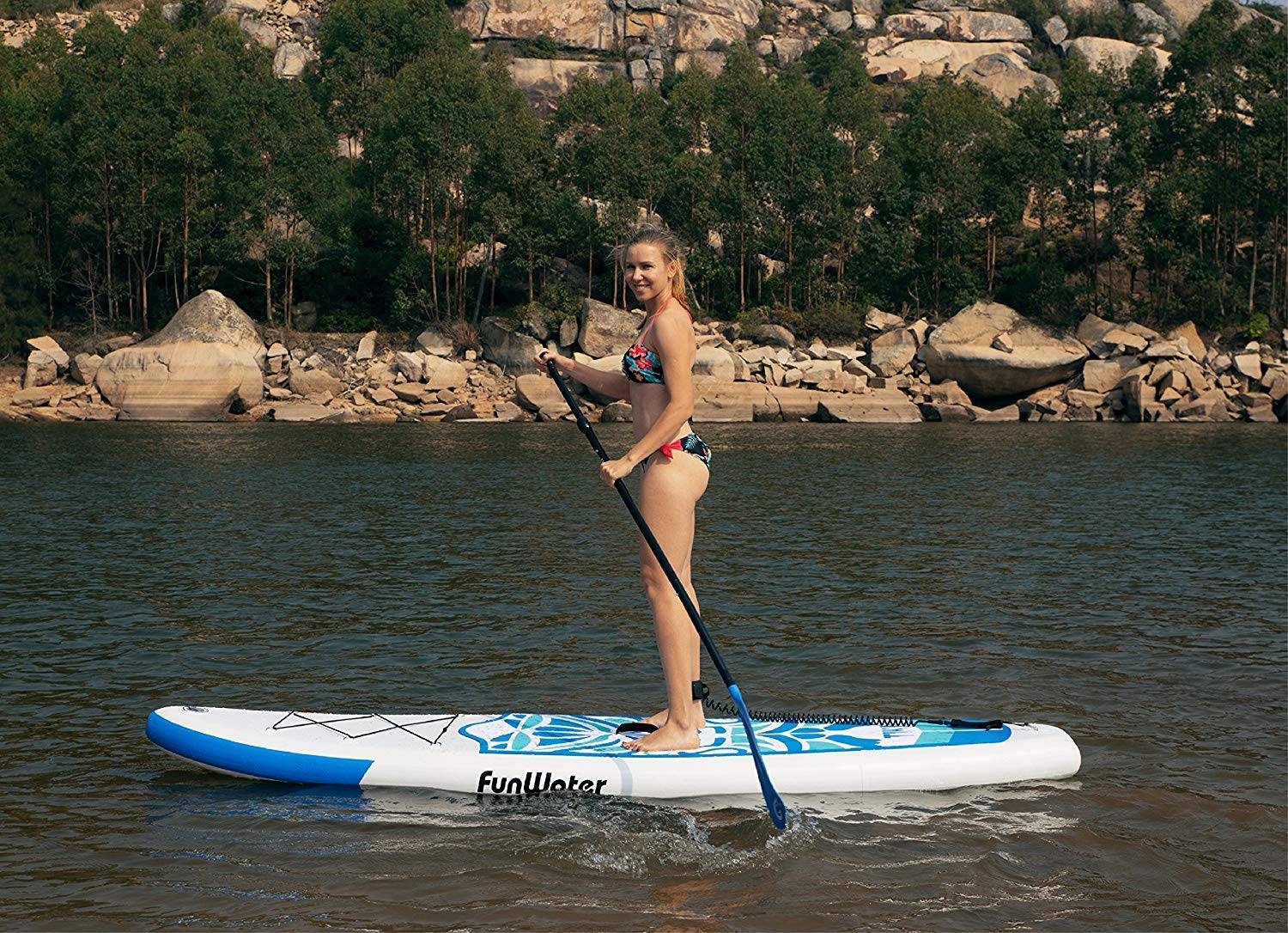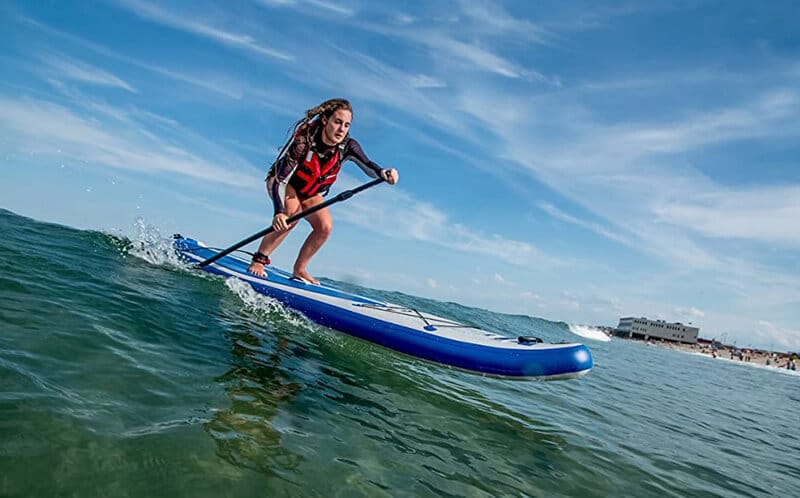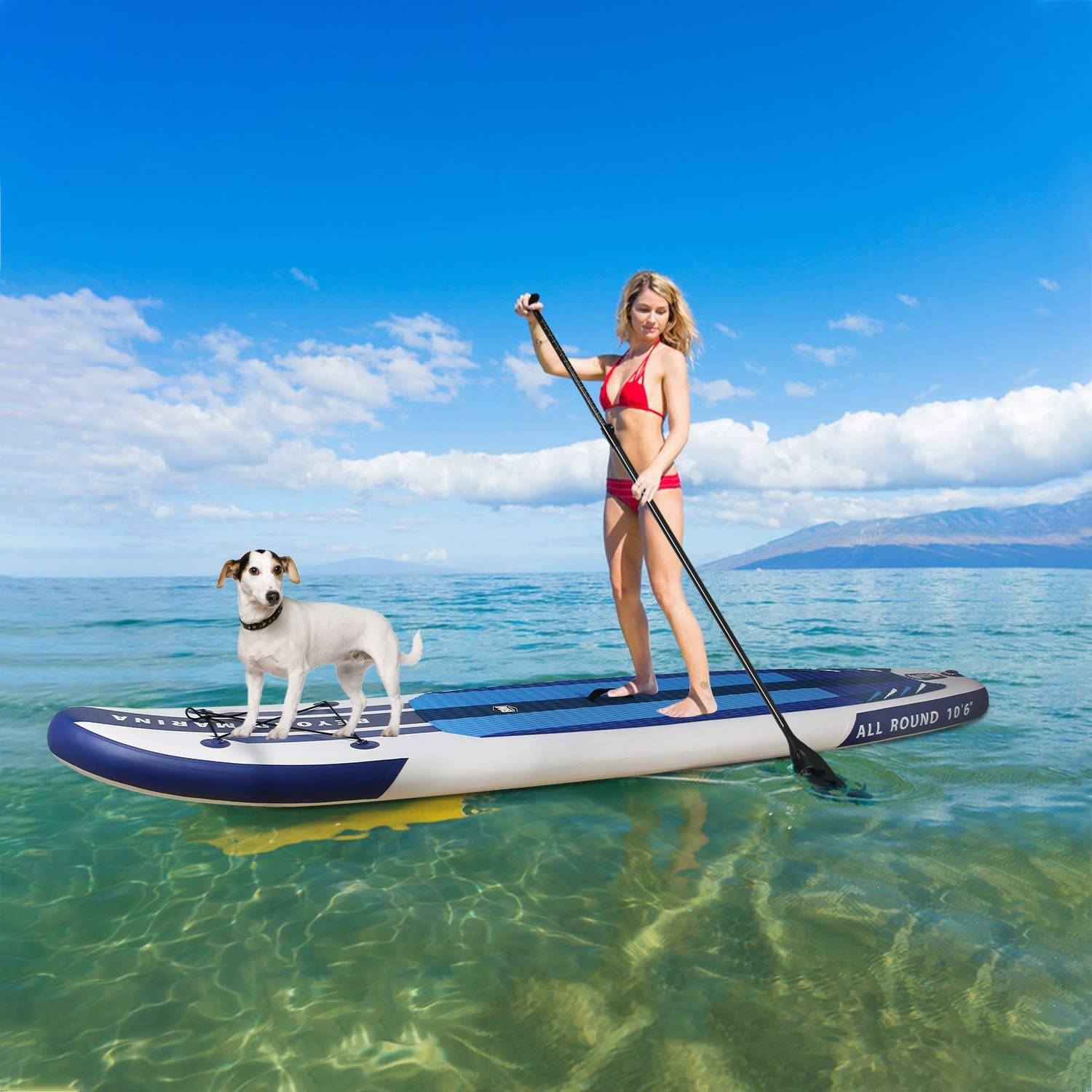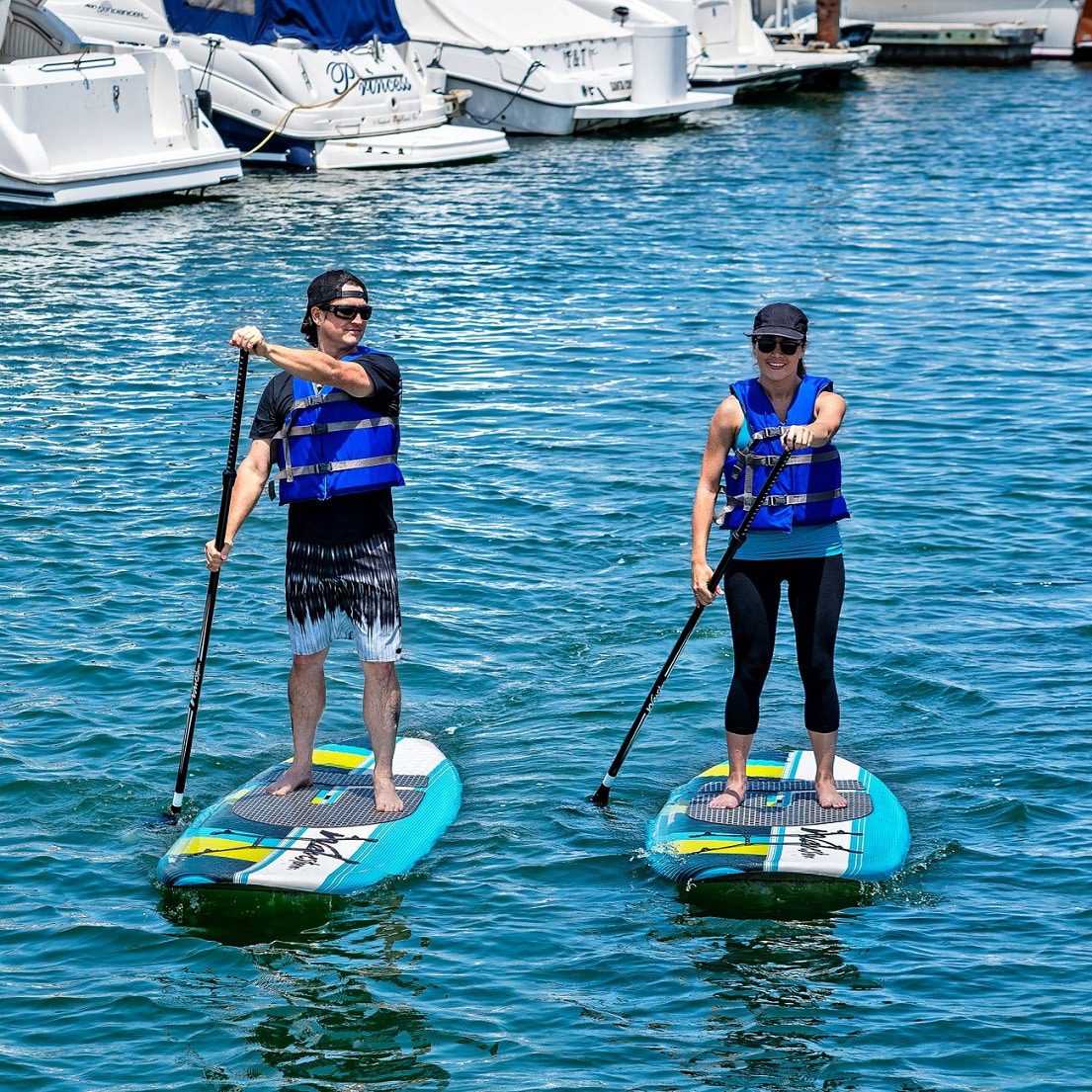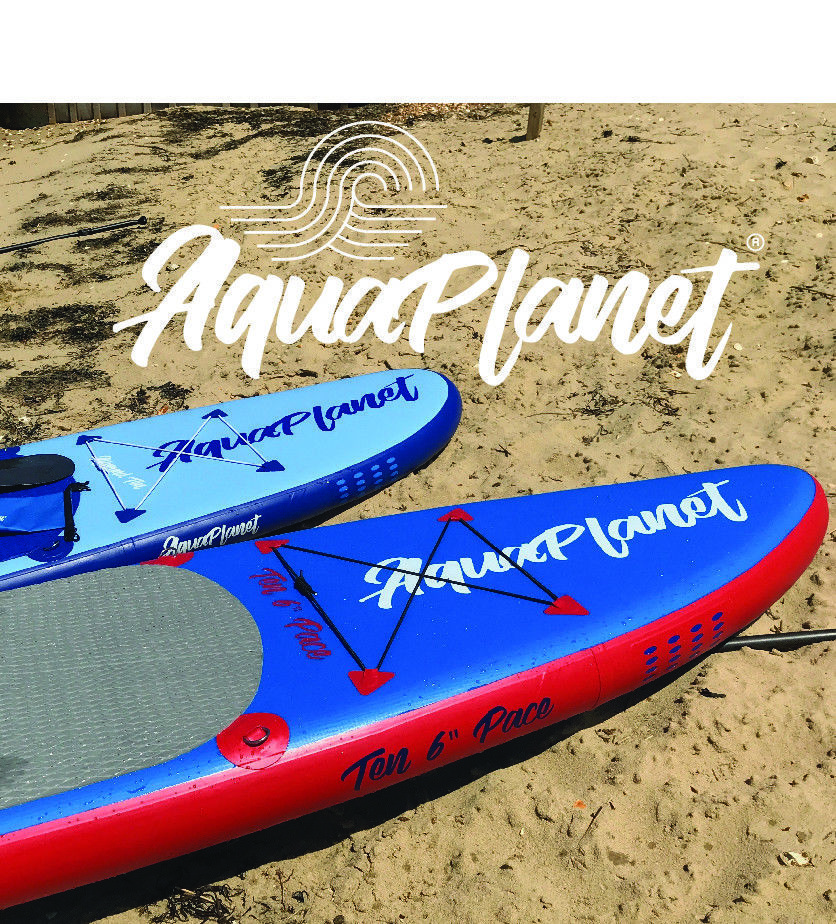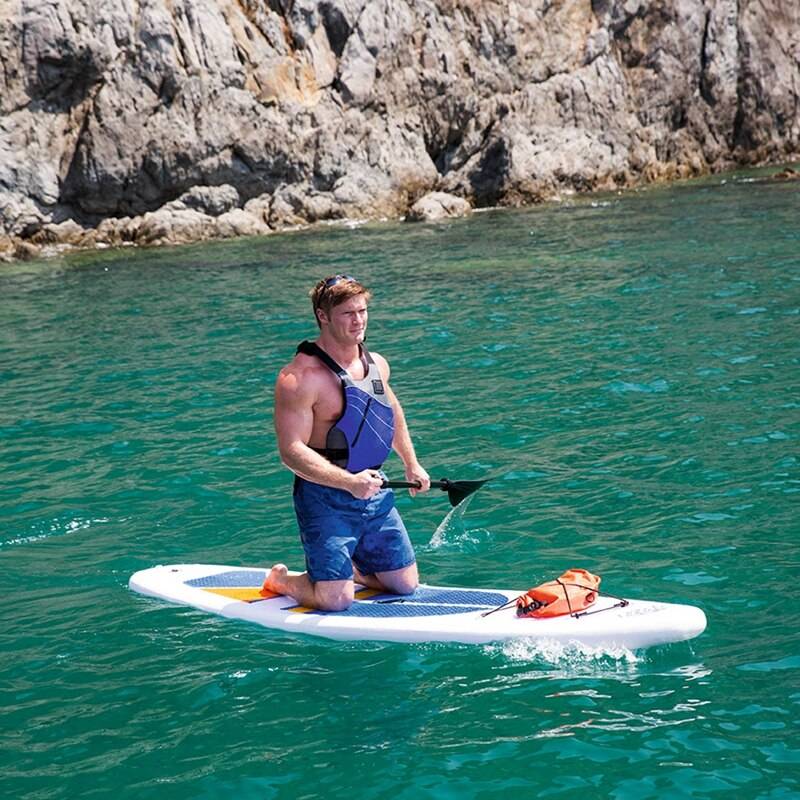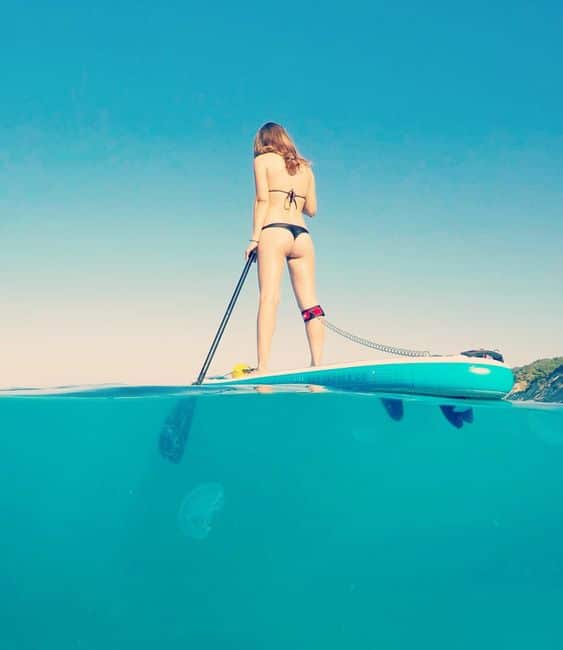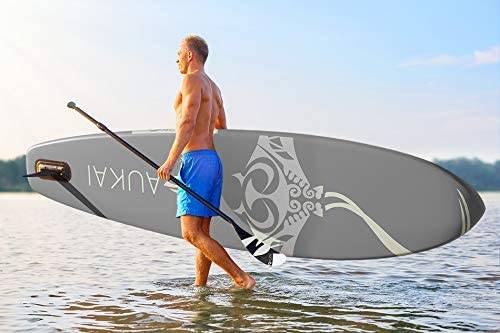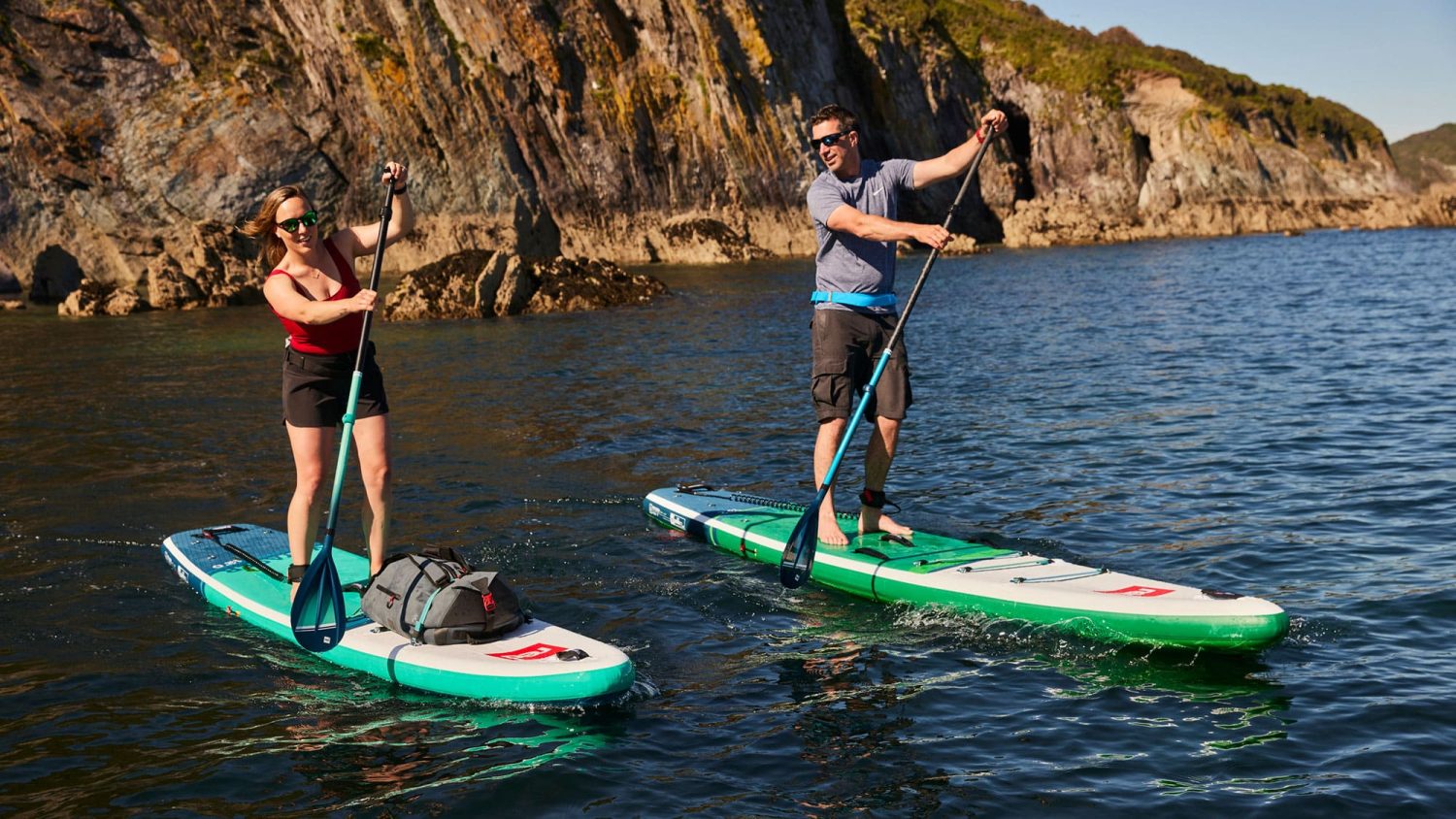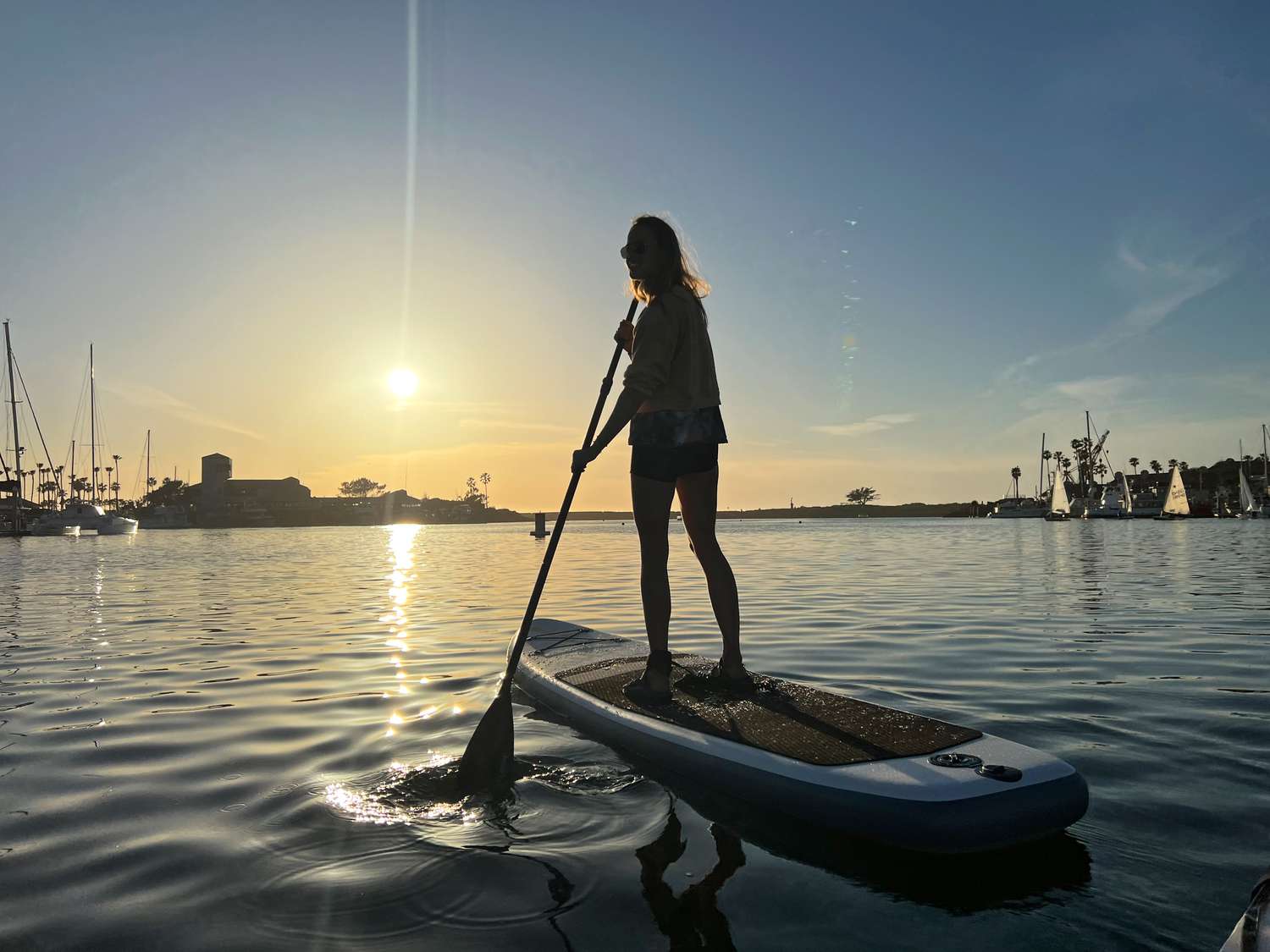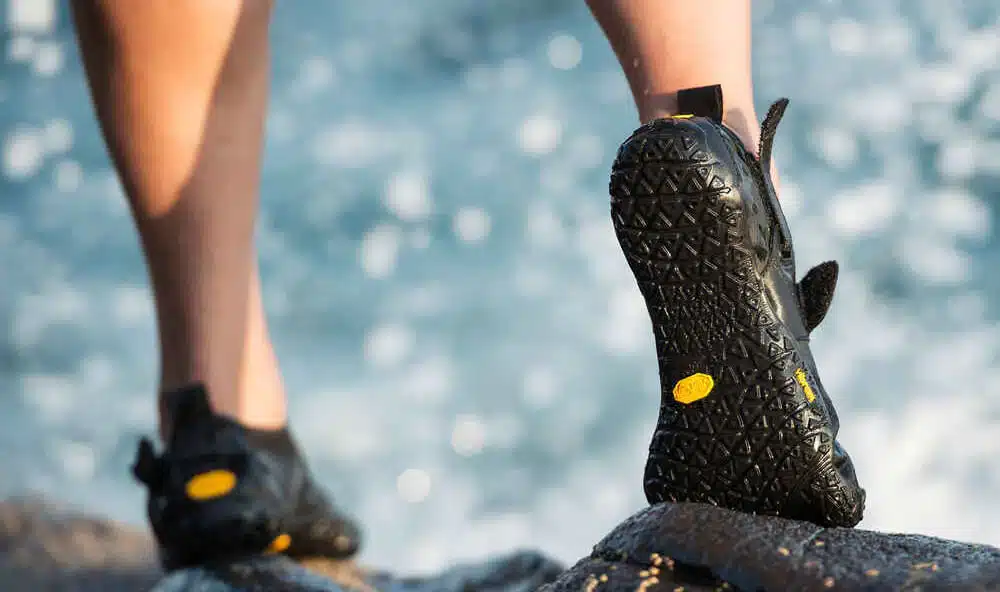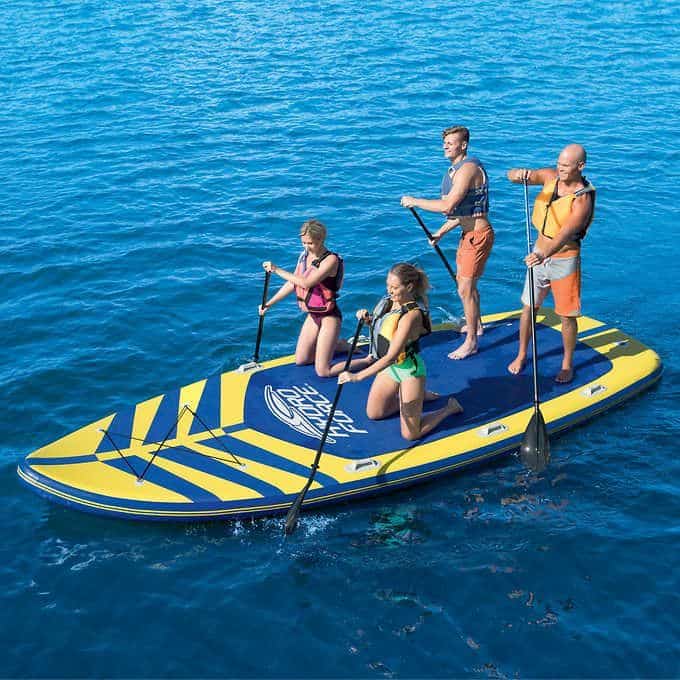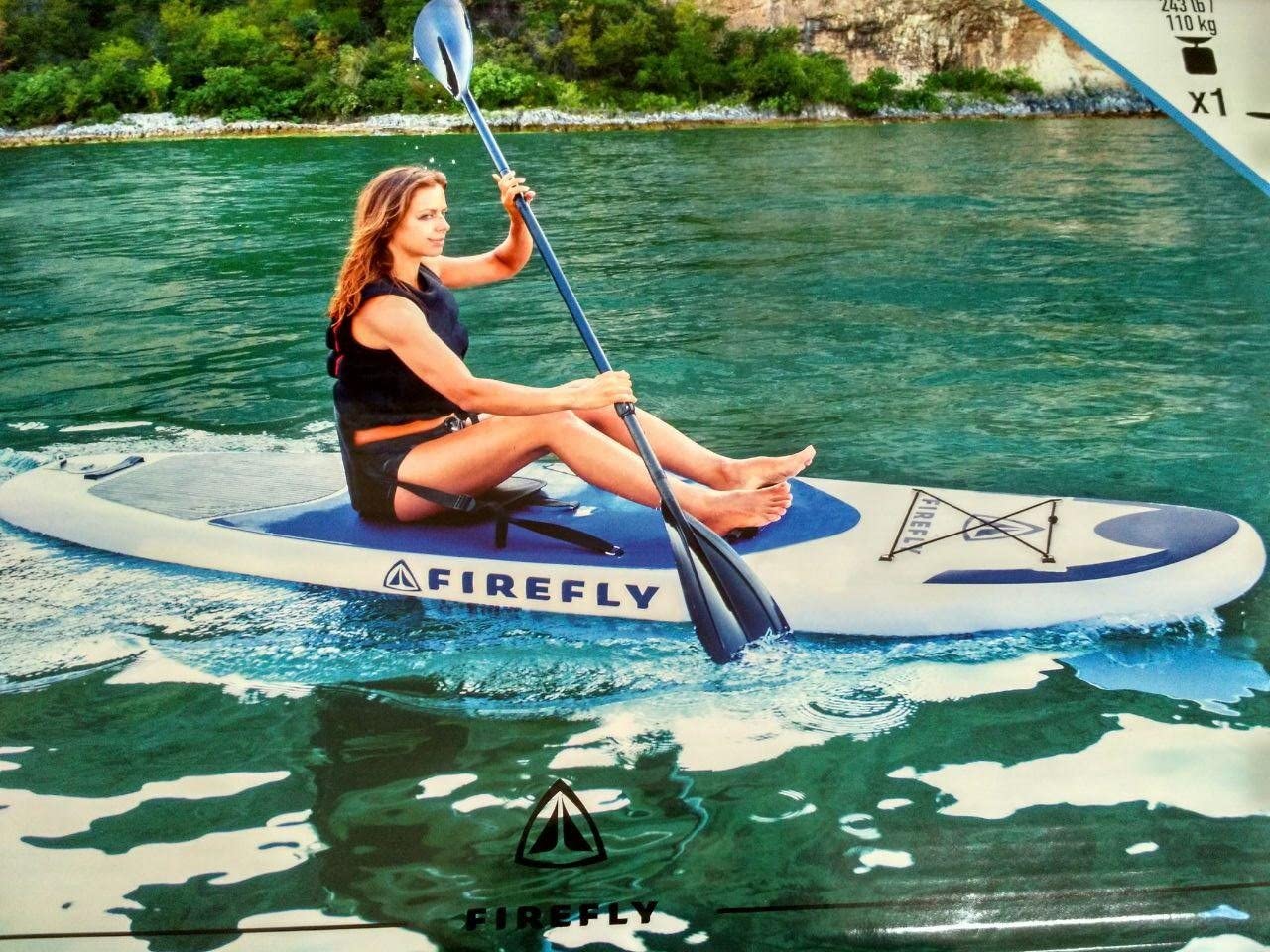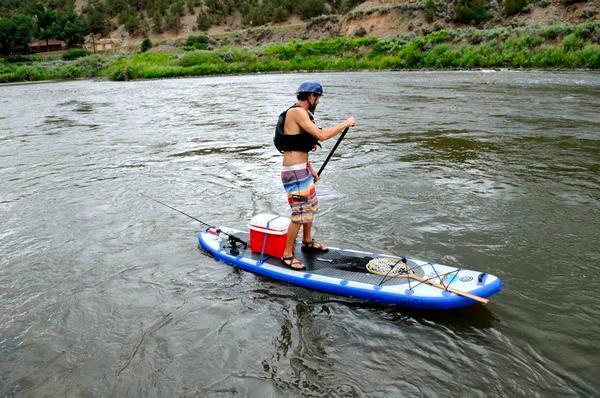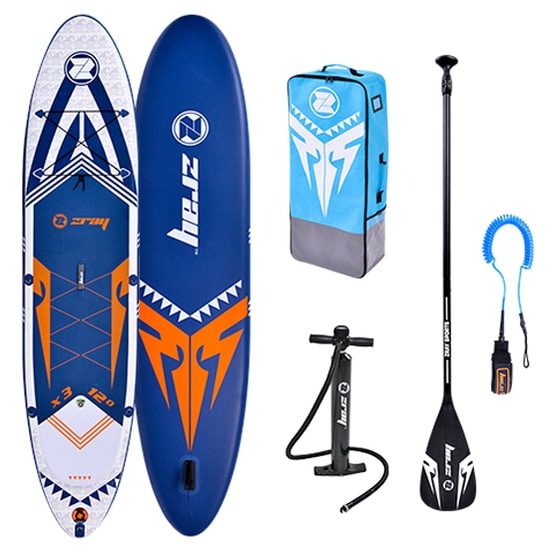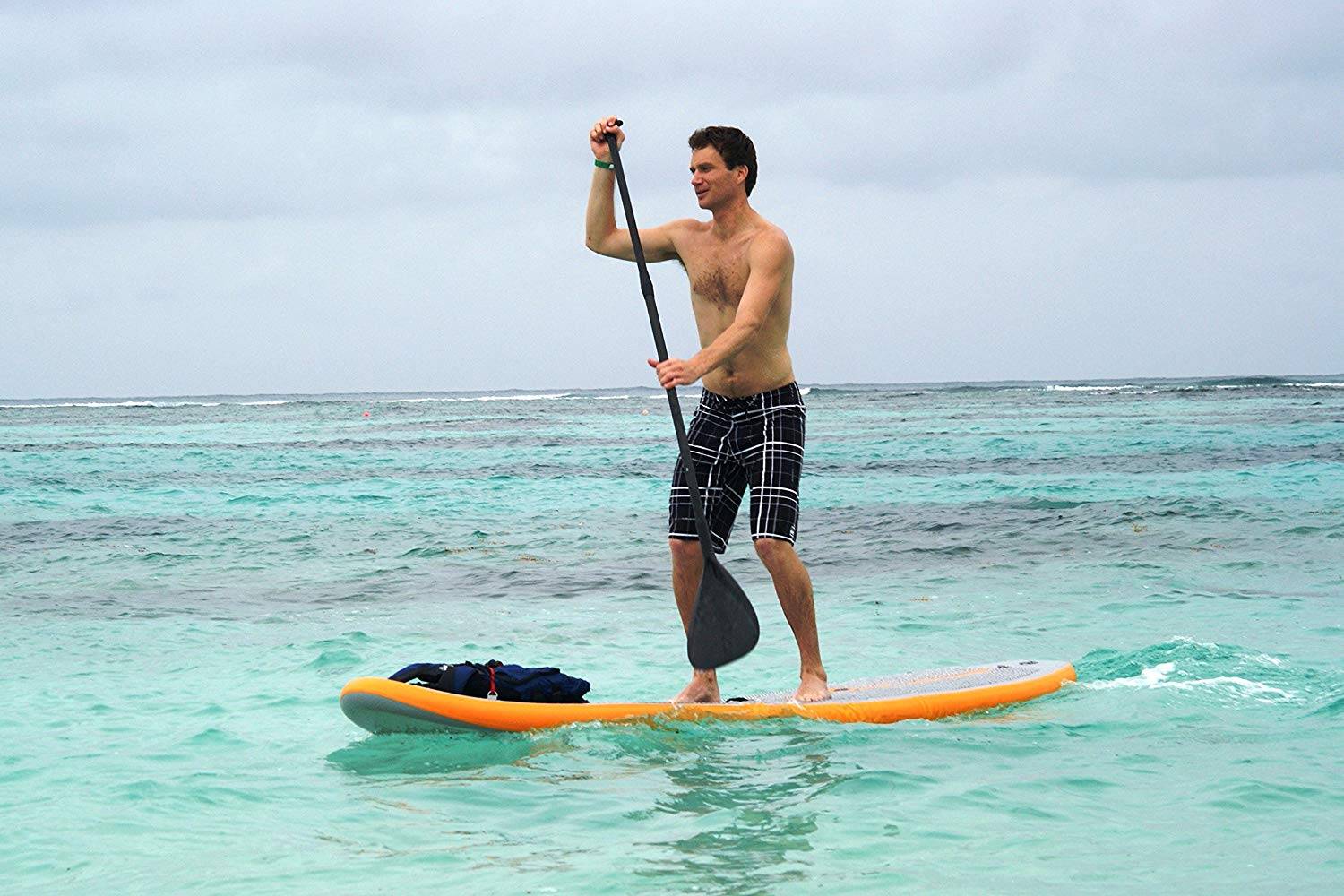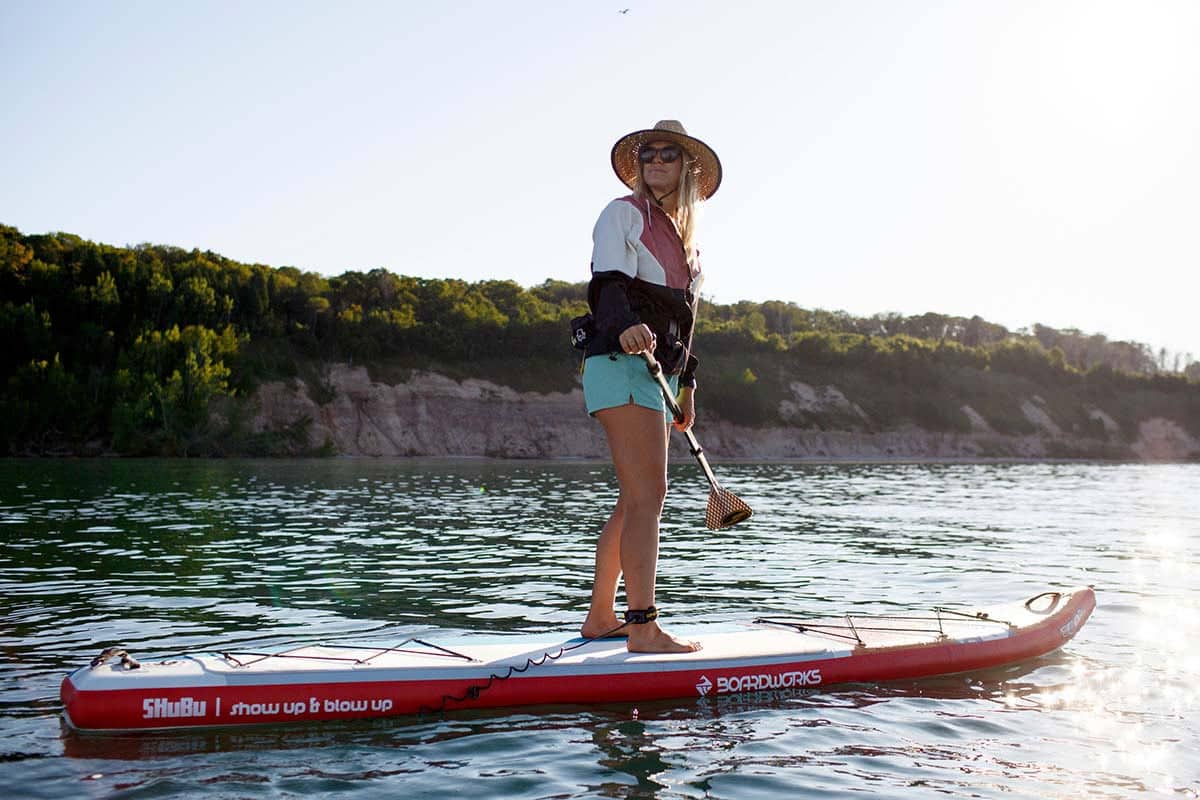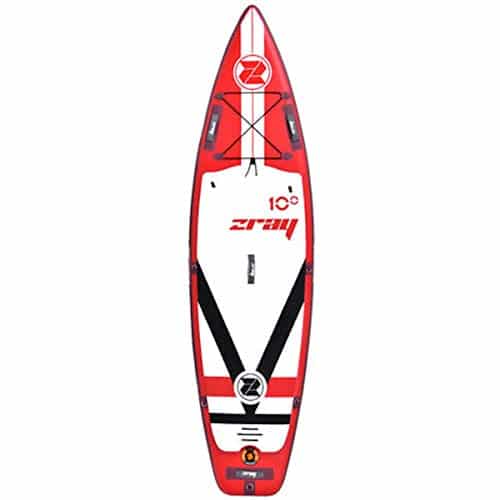Curved like a true champion surfer, the rocker on a SUP board holds the secret to an exhilarating experience on the water. It is no wonder why this subtle feature has become the focal point of many discussions among paddleboard enthusiasts.
The rocker plays a vital role in transforming a mundane outing into a thrilling adventure by providing stability, maneuverability, and an efficient ride.
Join us as we explore the significance of the rocker on a SUP board and uncover the hidden power behind this seemingly unassuming curve.
This image is property of cdn.shortpixel.ai.
Understanding Rocker on a SUP Board
Regarding stand-up paddleboarding (SUP), the board’s rocker is one of the most critical design considerations. The rocker refers to the curvature or bend of the board from nose to tail. Understanding the rocker is crucial in determining the board’s performance and suitability for different water conditions and paddler abilities.
In this article, we will explore the definition of rocker, the different types of rocker, and the effects of rocker on performance. We will also discuss the factors that affect rocker design, the various rocker designs available, the benefits of a properly designed rocker, and how to choose the right rocker for your needs. Finally, we will touch upon the essential maintenance practices to keep your SUP board’s rocker at its best.
Definition of Rocker
In SUP board design, “rocker” refers to the curve of the board’s bottom surface from nose to tail. It determines how much of the board’s surface area comes in contact with the water, affecting its performance and maneuverability. A board with more rocker will have a higher curve, allowing for smoother turns and maneuverability in waves, while a flatter rocker is better suited for flatwater paddling, providing better stability and tracking.
Types of Rocker
There are three main types of rocker designs commonly found on SUP boards: surf rocker, flatwater rocker, and hybrid rocker. Each type has its own unique characteristics that cater to specific paddling conditions and styles.
Surf Rocker
Surf rocker is designed for riding waves and performing tricks in the surf. It features a pronounced upward curve towards the nose and tail, giving the board excellent maneuverability and responsiveness on steep waves. The increased rocker allows for tighter turns and better control when riding down the face of a wave.
Flatwater Rocker
Flatwater rocker, as the name suggests, is designed for flatwater paddling and touring. It has minimal curvature, with a flatter profile from nose to tail. This design promotes better tracking and stability, making it ideal for long-distance paddling, fitness workouts, and SUP yoga. Flatwater rocker is also famous for beginners due to its stability and ease of maneuverability.
Hybrid Rocker
Hybrid rocker combines elements of both surf and flatwater rocker designs. It offers a compromise between maneuverability and stability, making it versatile for a variety of paddling styles and water conditions. Hybrid rocker boards excel in various environments, from small waves to water, making them popular for intermediate and advanced paddlers seeking a well-rounded board.
Effects of Rocker on Performance
The rocker of a SUP board plays a significant role in determining its performance characteristics. The amount of rocker affects how the board handles various water conditions and the paddler’s ability to control the board. Let’s explore the effects of rockers on performance in more detail.
Enhanced Maneuverability
A high rocker board offers enhanced maneuverability, particularly in waves and tight turns. The curved shape allows the board to pivot more quickly, making it ideal for surfing and dynamic maneuvers. On the other hand, a flatter rocker provides stability and straight tracking, making it more suitable for flatwater paddling and maintaining a consistent speed.
Improved Stability
A flatter rocker design provides a larger surface area in contact with the water, which translates to increased stability. This primarily benefits beginners or paddlers who prefer a relaxed session on calm waters. A stable board allows for effortless balance, reducing fatigue and increasing overall enjoyment on the water.
Better Performance in Different Conditions
The type of rocker design also determines how a SUP board performs in various water conditions. A high rocker board excels in waves, allowing for quick turns and maneuverability. In contrast, a flatter rocker design is more efficient for long-distance paddling, as it maintains better momentum and tracks straight. A hybrid rocker balances these two extremes, offering versatility for various conditions.
Factors Affecting Rocker Design
Several factors influence the design of the rocker on a SUP board. Understanding these factors is essential when selecting a board that suits your specific needs, abilities, and intended use.
Type of Water
Considering the type of water you will primarily paddle in is crucial when choosing the rocker design. A high-rocker board is recommended if you focus on riding ocean waves. A flatter rocker design will provide better stability and efficiency if you plan to paddle primarily on flatwater. Understanding the water conditions you encounter will help determine the appropriate amount of rocker for your board.
Paddler’s Skill Level
Another factor to consider when selecting the right rocker design is the paddler’s skill level. Beginners may find a flatter rocker board more forgiving and stable, allowing them to gain confidence and develop their paddling technique. Intermediate and advanced paddlers, including those interested in SUP surfing or more dynamic maneuvers, may opt for a higher rocker design for enhanced maneuverability and responsiveness in varying conditions.
Board’s Intended Use
Determining the SUP board’s primary purpose or intended use is instrumental in selecting the right rocker design. If you plan to focus on recreational paddling, fitness workouts, or SUP yoga, a flatter rocker design will provide the stability and tracking required for these activities. If you intend to mainly surf waves, a board with a high rocker will provide the necessary agility and responsiveness. Hybrid rocker boards are ideal for those who want an all-around board that performs well in various conditions.
Paddler’s Weight and Size
The weight and size of the paddler should also be taken into account when selecting a rocker design. Heavier paddlers may benefit from a flatter rocker design, as it offers more excellent stability due to increased buoyancy. Lighter paddlers may find a higher rocker board provides the maneuverability and responsiveness required for their paddling style.
Different Rocker Designs
Understanding the various rocker designs available on SUP boards is essential when choosing a board that suits your needs and preferences. Let’s delve into the details of each rocker design.
Surf Rocker
Surf rockers feature a pronounced rocker bend, making them ideal for wave riding and surfing. These boards have a curved shape, allowing quick turns and a high level of maneuverability. The increased rocker enables the board to navigate steep waves smoothly, providing surfers with control and stability. Surf rockers are typically shorter in length and more comprehensive, providing better stability in the waves.
Flatwater Rocker
Flatwater rockers have a minimal curve, resulting in a flatter profile from nose to tail. These boards are designed for calm water paddling, fitness workouts, and touring. Flatwater rockers excel in maintaining a straight line and offering stability, making them suitable for all skill levels. Their longer length and narrower width enhance glide efficiency and tracking, providing an enjoyable paddling experience on flat water.
Hybrid Rocker
Hybrid rockers combine the benefits of both surf and flatwater rocker designs, creating a versatile board suitable for various conditions. These boards balance maneuverability and stability, making them well-rounded and adaptable. Hybrid rockers are popular for those who can surf smaller waves while enjoying flatwater paddling or occasional touring. They offer the best of both worlds, ensuring an enjoyable paddling experience in a range of water conditions.
Benefits of a Properly Designed Rocker
Choosing an SUP board with an adequately designed rocker can significantly enhance your paddling experience. Let’s explore the benefits of a well-designed rocker in more detail.
Enhanced Maneuverability
An adequately designed rocker, whether a surf or hybrid rocker, provides enhanced maneuverability. The curvature of the board allows for quick and effortless turns and pivots, essential when navigating waves or performing more dynamic maneuvers. Enhanced maneuverability translates to more fun on the water, empowering paddlers to explore their full potential.
Improved Stability
Stability is a critical factor for any SUP board, and a properly designed rocker can significantly contribute to stability on the water. A flatwater rocker or hybrid rocker design offers a broader platform and increased contact with the water, providing a stable base for paddlers. This stability boosts confidence, allowing paddlers to focus on their technique and enjoy their time on the water without worrying about balance.
Better Performance in Different Conditions
The right rocker design enables a SUP board to perform optimally in various water conditions. Whether in small to medium-sized waves or cruising on a calm lake, an adequately designed rocker will enhance your performance. The curvature of the board allows for quick, responsive turns in surf conditions, while a flatter rocker design ensures efficient tracking and speed in flat water. The versatility of an adequately designed rocker widens your paddling possibilities and allows for a rewarding experience, no matter the conditions.
This image is property of cdn.shopify.com.
Choosing the Right Rocker
Selecting the right rocker design is crucial for maximizing your enjoyment and performance on a SUP board. Here are some helpful tips to consider when choosing the ideal rocker for your needs.
Consulting Experts
If you are unsure about the rocker design that suits your paddling style or conditions, consulting with experts can provide valuable insight. Contact experienced SUP board retailers, instructors, or other experienced paddlers who can offer guidance based on your specific needs and preferences. Their expertise and knowledge can help narrow down the options and ensure you make an informed decision.
Considering Personal Preferences
Listening to your own preferences and goals is another important aspect when choosing the correct rocker. Consider the type of paddling you enjoy, the environments you frequent, and the level of maneuverability and stability you desire. Reflecting on these personal factors will ultimately lead you to a rocker design that enhances your experience and aligns with your specific desires.
Testing Different Rocker Designs
Whenever possible, test paddleboards with different rocker designs before making a final purchase. Many SUP retailers offer demo days or rental options, allowing you to try different boards and rocker designs in real-world conditions. Testing boards will provide firsthand experience and feedback, enabling you to make an informed decision based on your comfort, maneuverability, stability, and overall enjoyment on the water.
Maintaining a SUP Board’s Rocker
Proper maintenance of your SUP board’s rocker is vital to ensure its longevity and optimal performance. Here are some essential maintenance practices to keep your SUP board’s rocker in top shape.
Regular Inspection and Repair
Regularly inspect your SUP board for any signs of damage or wear, paying close attention to the rocker area. Look for dings, cracks, or soft spots that may affect the integrity of the board. Address any issues promptly by repairing or seeking professional assistance, as neglecting damage can further deteriorate the rocker and overall performance.
Proper Storage
Storing your SUP board correctly is crucial in maintaining its rocker design. Store your board in a cool, dry place away from direct sunlight and extreme temperatures. Avoid placing heavy objects on top of it, as excessive weight can deform the rocker. Use protective bags or racks designed for SUP boards to prevent unnecessary stress on the rocker during storage.
Avoiding Excessive Weight and Pressure
When transporting or handling your SUP board, avoid excessive weight or pressure on the rocker. Carelessly dragging or dropping the board can damage the rocker’s integrity. When loading your board onto a vehicle or carrying it, distribute the weight evenly and handle it carefully to minimize stress on the rocker area.
This image is the property of www.sealionboards.com.
Conclusion
Understanding the importance of the rocker on a SUP board is crucial in selecting the right board for your needs and maximizing your enjoyment on the water.
The rocker’s design affects the board’s maneuverability, stability, and performance, making it an essential aspect to consider. Water conditions, paddler skill level, intended use, and size influence the ideal rocker design. By carefully selecting the appropriate rocker, consulting with experts, and considering personal preferences, you can choose a board that enhances your paddling experience.
Regular maintenance, including inspection, proper storage, and careful handling, will ensure the longevity and optimal performance of your SUP board’s rocker. By understanding and appreciating the importance of rocker design, you are well on your way to an exceptional SUP experience. Happy paddling!

